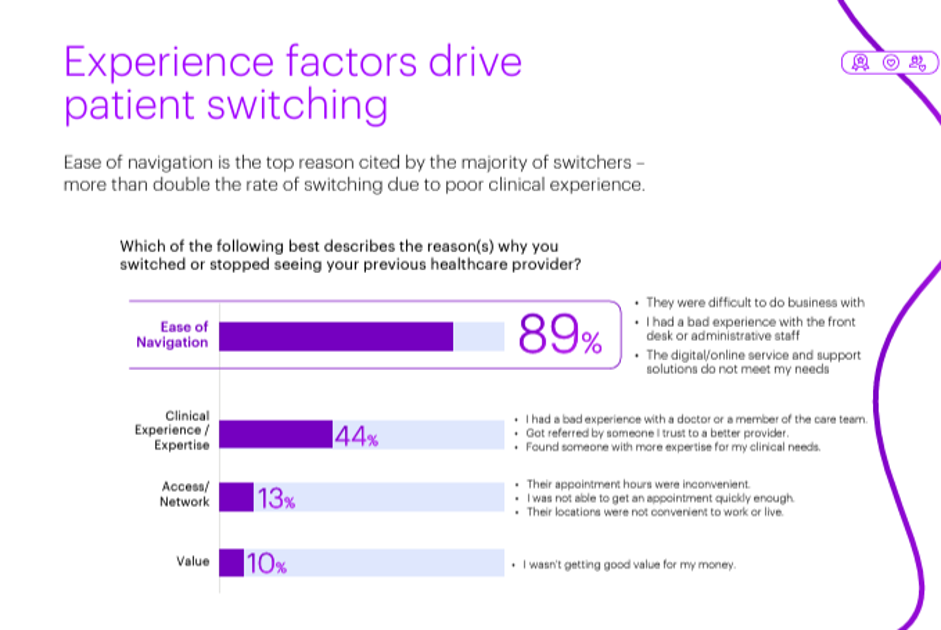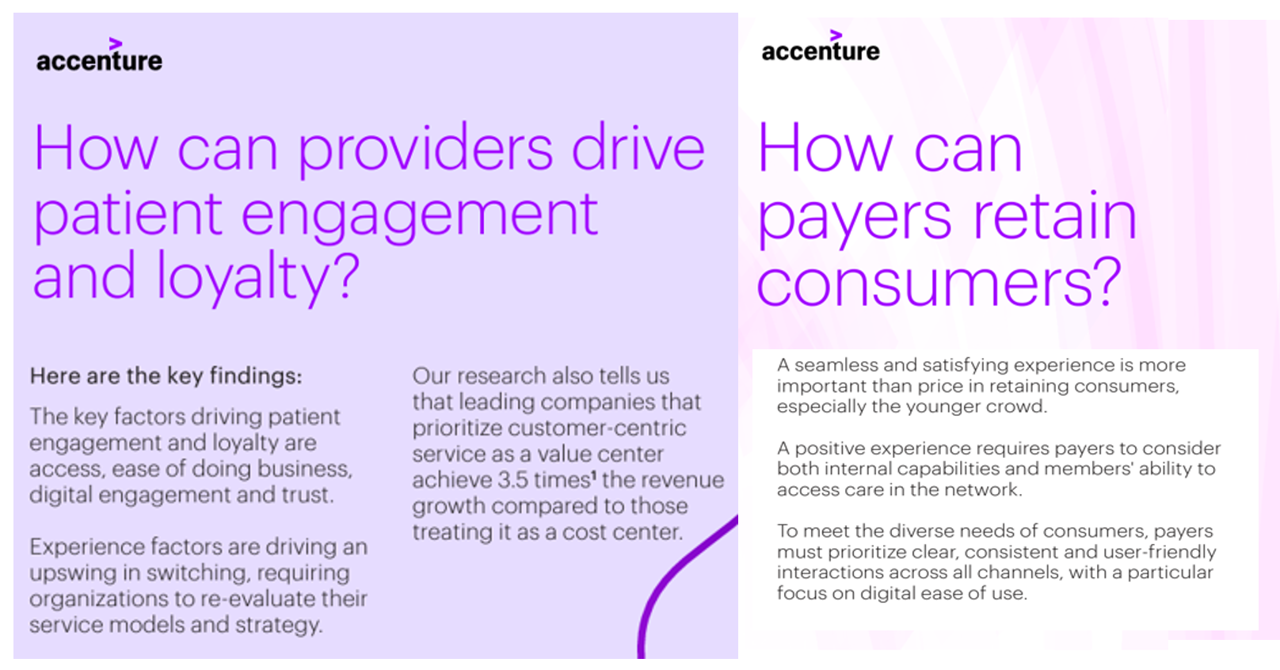When health care providers and payers make patients’ lives easier, there’s a multiplying factor for loyalty and revenue growth, according to Accenture’s latest look into the value of experience in The Power of Trust: Unlocking patient loyalty in healthcare.

Accenture conducted two surveys for this research, assessing nearly 16,000 U.S. adult consumers’ views on healthcare providers and health insurance plans.
Several factors underpin patients’ selection of a new health care provider, especially:
- Access (70%), with a convenient location, quickly available appointments, digital/mobile/social interactions, and virtual care availability; and,
- The provider being a trusted source — a function as a referral from a friend or physician, as well as proactive and engaging communications.

Once that appointment is made, patients are looking for ease-of-use in their personal health care “operating systems” — above all, ease of navigation of and with the health care provider, with good experiences from the front desk and administrative staff to clinical encounters. Part of this ease, spoiler alert, is via digital engagement that’s well-designed, friction-free, and personalized. 
That ease-of-use is code for providers who are easy to work with, noted by virtually all — 99% — of consumers in the Accenture study.
Looking at payers, member-consumers seek seamless experiences and more easy-to-work-with patient-flows that ensure retention and loyalty to the plan. 
Lacking that seamless, positive experience with health plans, 52% of members’ feel motivation to switch: note that switchers would more likely be younger (60% of Millennials) versus 14% of Boomers.
In addition to experience, 3 in 5 members would switch plans based on benefits, and 31% due to the network available to access services.
Experience factors that underpin members’ switch mentality include incorrect or inaccurate information provided by the plan, inability to get questions answered, and poor interaction with customer service and digital platforms. 
Health Populi’s Hot Points: For the patient-member-consumer, the digital experience “is” the overall experience given the growing use of online scheduling, online access to portals and EHRs, use of telehealth and virtual care platforms for clinical encounters, and bill paying, among other digital health care interactions.
Note that the patient’s service experience weighs the most in their “trust equity” with health care providers — 4.6 x greater trust yielded by that experience, shown in the last graphic from Accenture’s findings.
The bottom-line here: “trusters” are 6x more likely to stay with a provider, and subsequently voting with their feet to stay with that organization, would be more likely to recommend the provider (or plan) to peers and family which kicks off a flywheel of trust and loyalty that benefits all involved in the experience.





 I love sharing perspectives on what's shaping the future of health care, and appreciate the opportunity to be collaborating once again with Duke Corporate Education and a global client on 6th May. We'll be addressing some key pillars to consider in scenario planning such as growing consumerism in health care, technology (from AI to telehealth), climate change, and trust -- the key enabler for health engagement or dis-engagement and mis-information. I'm grateful to be affiliated with the corporate education provider
I love sharing perspectives on what's shaping the future of health care, and appreciate the opportunity to be collaborating once again with Duke Corporate Education and a global client on 6th May. We'll be addressing some key pillars to consider in scenario planning such as growing consumerism in health care, technology (from AI to telehealth), climate change, and trust -- the key enabler for health engagement or dis-engagement and mis-information. I'm grateful to be affiliated with the corporate education provider  Thank you FeedSpot for
Thank you FeedSpot for